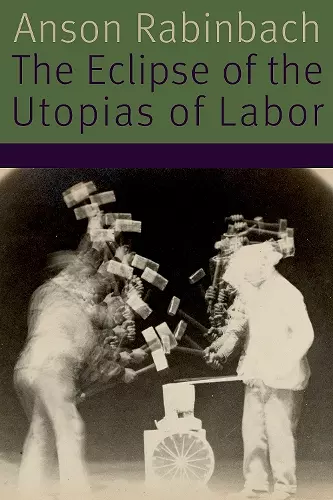The Eclipse of the Utopias of Labor
Format:Hardback
Publisher:Fordham University Press
Published:6th Feb '18
Currently unavailable, and unfortunately no date known when it will be back

The Eclipse of the Utopias of Labor traces the shift from the eighteenth-century concept of man as machine to the late twentieth-century notion of digital organisms. Step by step—from Jacques de Vaucanson and his Digesting Duck, through Karl Marx’s Capital, Hermann von Helmholtz’s social thermodynamics, Albert Speer’s Beauty of Labor program in Nazi Germany, and on to the post-Fordist workplace, Rabinbach shows how society, the body, and labor utopias dreamt up future societies and worked to bring them about.
This masterful follow-up to The Human Motor, Rabinbach’s brilliant study of the European science of work, bridges intellectual history, labor history, and the history of the body. It shows the intellectual and policy reasons as to how a utopia of the body as motor won wide acceptance and moved beyond the “man as machine” model before tracing its steep decline after 1945—and along with it the eclipse of the great hopes that a more efficient workplace could provide the basis of a new, more socially satisfactory society.
"Widely regarded as a classic of cultural studies, Anson Rabinbach's The Human Motor revealed for the first time the importance of the late-19th-century European obsession with the laboring body and its vicissitudes. Scholars from many different fields who have drawn on it over the years, as well as those eager to join the discussion, will warmly welcome the remarkable essays collected in The Eclipse of the Utopias of Labor, which will enrich their understanding of previous as well as on-going efforts to create a productive, efficient and just society." -- --Martin Jay University of California, Berkeley "Rabinbach provides a sweeping account of the history of the modern working body. From industrialization to de-industrialization, he traces the rise and fall of three regimes of the biopolitics of labor, corresponding to three ways of analogizing bodies to machines. A must-read for anyone interested in the decline of the 'work-centered society' and the ongoing search for meaningful work." -- -Deborah Coen Barnard College
ISBN: 9780823278565
Dimensions: unknown
Weight: unknown
248 pages